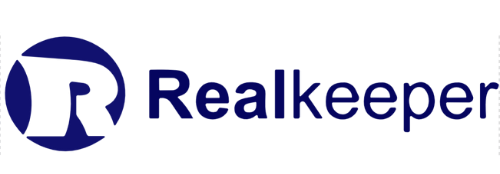
In today’s fast-paced business environment, organizations constantly seek ways to streamline operations, improve efficiency, and gain a competitive edge. One area that has seen significant transformation is the integration of Customer Relationship Management (CRM) systems with accounting software. By combining these two critical business functions, companies can achieve greater insight, automation, and synergy across departments. This blog will explore the role of CRM in accounting software, focusing on how Realkeeper, a leading solution, integrates CRM functionality to enhance business operations.
The Intersection of CRM and Accounting Software
Customer Relationship Management (CRM) and accounting software have traditionally operated separately. CRM systems manage customer interactions, sales processes, and marketing efforts while accounting software handles financial transactions, bookkeeping, and reporting. However, integrating these two systems has become increasingly important as businesses recognize the value of aligning their financial and customer data.
Realkeeper’s Approach to CRM-Accounting Integration
Realkeeper is at the forefront of this integration, offering a robust accounting software platform with built-in CRM capabilities. This integration is designed to provide businesses with a comprehensive view of their operations, enabling them to manage customer relationships and financial data in one place.
Key Benefits of CRM-Accounting Integration in Realkeeper
1. Unified Data Management
One of the most significant advantages of integrating CRM with accounting software is the unification of data. Realkeeper allows businesses to maintain a single database for all customer and financial information. This unified approach eliminates the need for manual data entry, reduces errors, and ensures that all departments have access to the same information.
For example, when a sale is made, the CRM system can automatically update the accounting records, ensuring that revenue is accurately recorded and reflected in financial reports. This level of integration streamlines operations and reduces the risk of discrepancies between sales and accounting data.
Unified Data Management
2. Enhanced Financial Forecasting
Accurate financial forecasting is crucial for businesses of all sizes. By integrating CRM with accounting software, Realkeeper provides businesses with real-time insights into their financial performance. Sales data from the CRM can be seamlessly incorporated into financial forecasts, allowing businesses to make informed decisions about future investments, budgeting, and resource allocation.
Realkeeper’s integrated approach also enables businesses to track customer payment histories, monitor outstanding invoices, and predict cash flow more accurately. This level of visibility is essential for maintaining financial stability and planning for future growth.
3. Improved Customer Service
Customer service is a key differentiator in today’s competitive market. Integrating CRM with accounting software allows businesses to provide better customer service by giving customer-facing teams access to financial information. For instance, if a customer calls with a billing inquiry, the customer service representative can quickly access the customer’s account history, payment status, and any outstanding invoices through Realkeeper.
This immediate access to financial data enables customer service teams to resolve issues more efficiently, leading to higher customer satisfaction and loyalty. Realkeeper’s CRM accounting integration also allows businesses to track customer interactions, preferences, and purchasing history, enabling more personalized service.
4. Streamlined Sales and Billing Processes
The integration of CRM and accounting software streamlines sales and billing processes by automating routine tasks and reducing manual intervention. Realkeeper’s platform automates the creation of invoices, tracks payments, and updates financial records in real-time. This automation not only saves time but also reduces the likelihood of errors in billing and accounting.
Moreover, Realkeeper’s CRM capabilities allow sales teams to track the entire sales cycle, from lead generation to closing the deal and receiving payment. This end-to-end visibility ensures that all aspects of the sales and billing processes are aligned, leading to faster payment cycles and improved cash flow.
5. Enhanced Reporting and Analytics
Realkeeper’s CRM accounting integration provides businesses with powerful reporting and analytics tools. By combining customer and financial data, businesses can generate comprehensive reports that offer insights into sales performance, customer behavior, and financial health. These reports can be customized to meet the specific needs of different departments, allowing for more targeted analysis and decision-making.
For example, a sales team can use Realkeeper’s reporting tools to analyze customer trends and identify opportunities for upselling or cross-selling. Meanwhile, the finance department can generate reports that track revenue, expenses, and profitability, providing a clear picture of the company’s financial status.
6. Compliance and Audit Readiness
Maintaining compliance with financial regulations and preparing for audits can be a daunting task for businesses. Realkeeper’s integration of CRM and accounting software simplifies these processes by ensuring that all financial transactions and customer interactions are accurately recorded and easily accessible.
The platform’s audit trail functionality allows businesses to track changes to financial records, providing a transparent and detailed history of all transactions. This level of transparency is essential for demonstrating compliance with regulations and facilitating smooth audits.
Realkeeper’s CRM Features in Detail
1. Contact Management
Realkeeper’s CRM module offers comprehensive contact management features, allowing businesses to store and organize customer information in one place. This includes details such as contact names, email addresses, phone numbers, and communication history. The contact management feature is integrated with the accounting module, ensuring that customer financial information is easily accessible.
2. Sales Pipeline Management
Realkeeper’s CRM module includes robust sales pipeline management tools that help businesses track leads, opportunities, and deals. The sales pipeline is fully integrated with the accounting system, allowing businesses to monitor the financial impact of sales activities in real-time. This integration ensures that sales forecasts are accurate and up-to-date.
3. Task and Activity Tracking
Realkeeper’s CRM module includes task and activity tracking features that help businesses manage their interactions with customers. Users can create tasks, set reminders, and track the progress of customer interactions, ensuring that no follow-ups are missed. The task and activity tracking features are linked to the accounting module, providing a complete view of customer interactions and their financial implications.
4. Marketing Automation
Realkeeper’s CRM module offers marketing automation tools that allow businesses to create and manage marketing campaigns. These tools are integrated with the accounting module, enabling businesses to track the financial impact of marketing activities. For example, businesses can analyze the return on investment (ROI) of marketing campaigns by linking campaign data with sales and revenue figures.
5. Customer Support Management
Realkeeper’s CRM module includes customer support management features that help businesses manage customer inquiries, complaints, and support tickets. The customer support module is integrated with the accounting system, allowing businesses to track the financial implications of support activities, such as refunds or discounts.
How Realkeeper Enhances Collaboration Between Departments
1. Sales and Finance Alignment
Realkeeper’s CRM accounting integration fosters collaboration between sales and finance teams by providing a shared platform for managing customer and financial data. This alignment ensures that both teams have access to the same information, reducing the likelihood of miscommunication and errors.
For example, when a sales team closes a deal, the finance team is automatically notified, and the revenue is recorded in the accounting system. This seamless communication ensures that both teams are on the same page, leading to more efficient operations and better financial management.
2. Improved Communication and Workflow
Realkeeper’s integrated platform enhances communication and workflow across departments. The CRM module allows sales, marketing, and customer service teams to share information and collaborate on customer-related tasks. Meanwhile, the accounting module ensures that financial data is up-to-date and accessible to all relevant departments.
This improved communication and workflow lead to faster decision-making, more accurate financial reporting, and a better overall customer experience.
3. Centralized Data Access
Realkeeper’s integration of CRM and accounting software provides centralized data access for all departments. This centralization ensures that all teams have access to the same information, reducing the risk of data silos and inconsistencies. For example, the sales team can access customer payment histories, while the finance team can view customer interactions and sales activities.
This centralized access to data enables teams to work more efficiently and make informed decisions based on accurate and up-to-date information.
Implementing Realkeeper: Best Practices for Success
1. Assess Your Business Needs
Before implementing Realkeeper, it’s important to assess your business needs and determine how the platform can best support your operations. Consider factors such as the size of your business, the complexity of your sales and accounting processes, and the specific features you require.
2. Plan for Integration
When implementing Realkeeper, it’s essential to plan for the integration of CRM and accounting functions. This includes mapping out how data will flow between departments, defining roles and responsibilities, and establishing processes for data entry and management.
3. Train Your Team
To ensure a successful implementation, it’s important to provide training for your team on how to use Realkeeper’s CRM and accounting features. This training should cover how to enter and manage data, generate reports, and use the platform’s automation tools.
4. Monitor and Optimize
Once Realkeeper is implemented, it’s important to monitor its performance and make adjustments as needed. This includes regularly reviewing data accuracy, optimizing workflows, and updating processes to ensure that the platform continues to meet your business needs.
Conclusion: The Future of CRM-Accounting Integration with Realkeeper
The integration of CRM and accounting software is no longer a luxury—it’s a necessity for businesses looking to stay competitive in today’s market. Realkeeper’s comprehensive platform provides businesses with the tools they need to manage customer relationships and financial data in one place, leading to improved efficiency, better decision-making, and enhanced customer service.
As businesses continue to evolve, the integration of CRM and accounting functions will become increasingly important. Realkeeper is at the forefront of this trend, offering a solution that meets the needs of modern businesses and sets the stage for future growth.
By implementing Realkeeper, businesses can unlock the full potential of CRM accounting integration and position themselves for success in the years to come.



